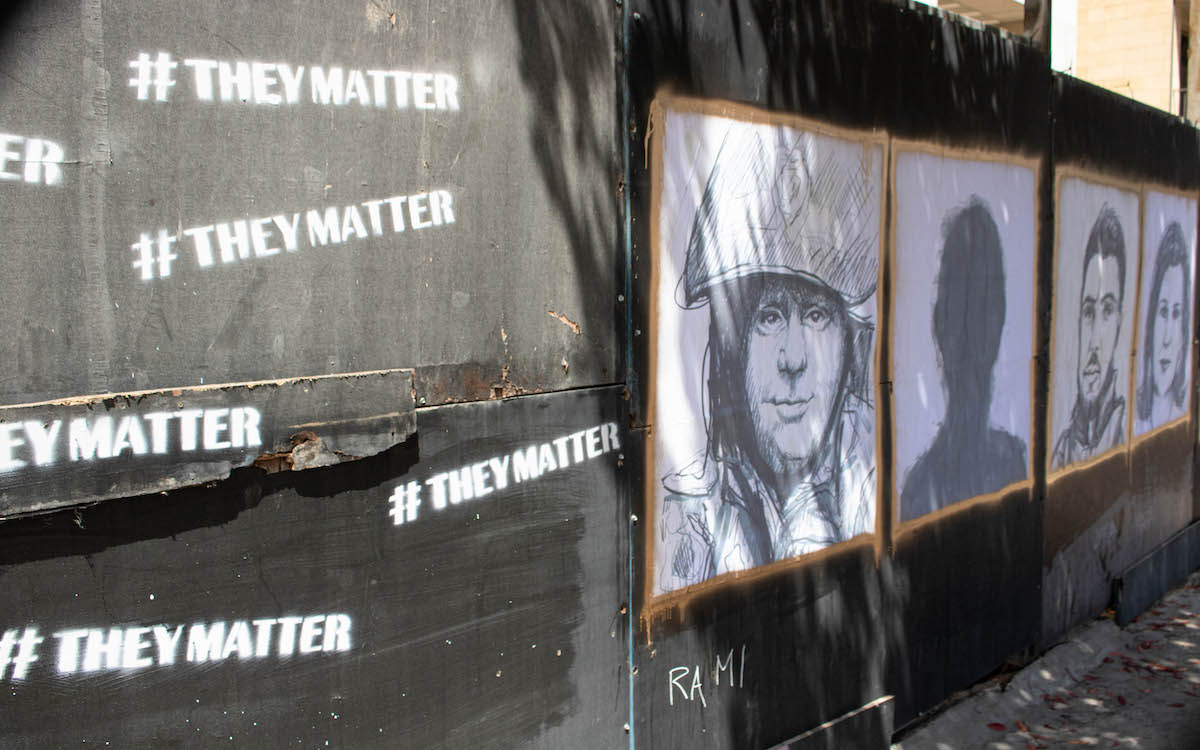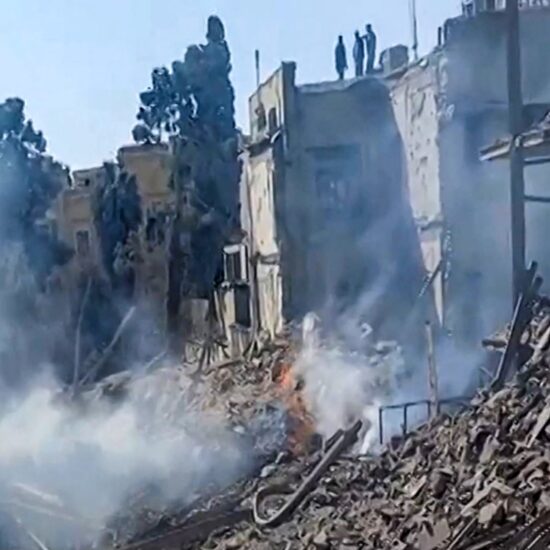
Twenty-nine months have passed since the August 4, 2020 explosion at the port of Beirut, and still, little progress has been made in uncovering the truth. 2,750 tons of ammonium nitrate were poorly stored in the fifty-year-old port, which caught fire and exploded, killing over 200 people, leaving over 7,000 injured, and causing severe damage to swathes of the capital.
Without a resolution in sight, the investigation has been put on hold since December 2021. The work has been interrupted by Amal-affiliated, Finance Minister Youssef Khalil, who must appoint six chamber presidents to the Court of Cassation before Tarek Bitar is able to resume work.
Many initiatives and NGOs rose from the tragedy, among them Beirut 607. Using the relatives of the victims’ testimonies, the initiative archives the tragic events that occurred at the Beirut Port explosion. The project’s backers are a group of journalists and media professionals who have worked to publish the book “Beirut 607: Alive Ashes,” which details the lives of those who perished in the explosion on August 4, as well as the website Beirut 607, which acts as an interactive database and a repository for the memories of those whose lives were lost.
The initiative emphasizes the value of documentation and provides a platform for preserving the experiences of those whose stories and families have not yet been given justice.
Starting point
Ahmad Mroueh, human rights activist and founder of the organization, has been passionate about documentary work since the Lebanese Civil War, in which many stories were lost and buried.
His experience at UMAM – Documentation and Research Center gives him an understanding of the importance of preserving history.
“In Lebanon, we don’t have winners, so our history, especially that of the civil war for instance, is scattered and comes from unreliable sources unless research centers are involved,” he told NOW.
Beirut 607 began working to help empower the families of the victims by providing lessons that would improve their media presence and impact.
“Our work began with the realization that the families were not united and had some political disagreements that impeded their unity,” Mroueh said. “Also, we helped them improve their media skills, such as writing statements and addressing the media, and other skills that helped mobilize the public.”
The initiative’s leaders saw that even governmental bodies had no way of keeping track of victims, their identities, and their stories, which made them realize how disorganized the process was.
Many of the volunteers worked on the project from their own time and it took a lot of time and effort, but it definitely paid off.
All the information was gathered by the team over a period of seven to eight months, according to Mroueh.
Although the group receives funding from the Euro-Meditteranean Foundation of Support to Human Rights Defenders, the founder says that the work was made possible by journalists volunteering their time and by junior designers hired with limited budgets.
“Many of the volunteers worked on the project from their own time and it took a lot of time and effort, but it definitely paid off,” he said.
An undying story
The website contains a section dedicated to the victims who passed away under “The Alive Ashes” where glimpses of their personalities and lives are provided. The “In Limbo” section provides details about victims who have survived, as well as the stories of their lives despite their injuries.
By navigating “The Memory” section, users can discover information about the blast from the press, protests, legal updates and disaster scale data.
In the “Legal Port Diaries” section, articles pertaining to the legalities and judicial process related to the case are collected and made available. In addition to developing further research papers which will be published, Mroueh hopes the information will be useful to later researchers who want to conduct studies on the port.
The virtual database could also benefit future generations of researchers seeking information about the port explosion. Even government officials have used it, Mroueh explained.
The founder said that the future of the website includes expanding to include more categories, and dedicating a portion to campaigning, as well as working on legal projects with other groups to change the laws that bind the judiciary to the state and prevent it from acting independently.
Such initiatives, which are uncommon in Lebanon, serve as a reminder that the victims are more than just statistics. They were actual people whose lives and the lives of their families were ruined, so they shouldn’t be forgotten.
The initiative holds a special meaning for Mohyi El Dine Lazkani, whose father Mohammad Lazkani passed away from a fatal wound as a result of living close to the port. In 2021, a journalist from the group approached the Lazkani family to conduct an interview regarding their father’s passing to include in their Beirut 607 book.
Lazkani recalled an instance in which he believed the victims and their families had a sense of being seen, heard, and having their memories valued.
Attempts to immortalize the tragedy, according to him, are of core importance to the memory of the blast. Documenting the scale of the tragedy serves as useful evidence for future legal and political proceedings in Lebanon, where the judiciary is unable to carry out its duties and politicians obstruct investigations.
“Such initiatives, which are uncommon in Lebanon, serve as a reminder that the victims are more than just statistics,” Lazkani said. “They were actual people whose lives and the lives of their families were ruined, so they shouldn’t be forgotten.”
Despite the political efforts to bury the port investigation and end the mobilization around it, he continued to say that the documenting of these stories would keep the victims and their pain alive in the minds of the people.
In Lebanon, few tragedies are adequately documented. Partly as a result of the civil war, information is scattered and the Lebanese have lost hope in achieving justice. Creating archives of those who died and those wounded is the only way to ensure that the Beirut port blast is forever embedded in the minds of Lebanese.
Dana Hourany is a multimedia journalist with @NOW_leb. She is on Instagram @danahourany and Twitter @danahourany.








